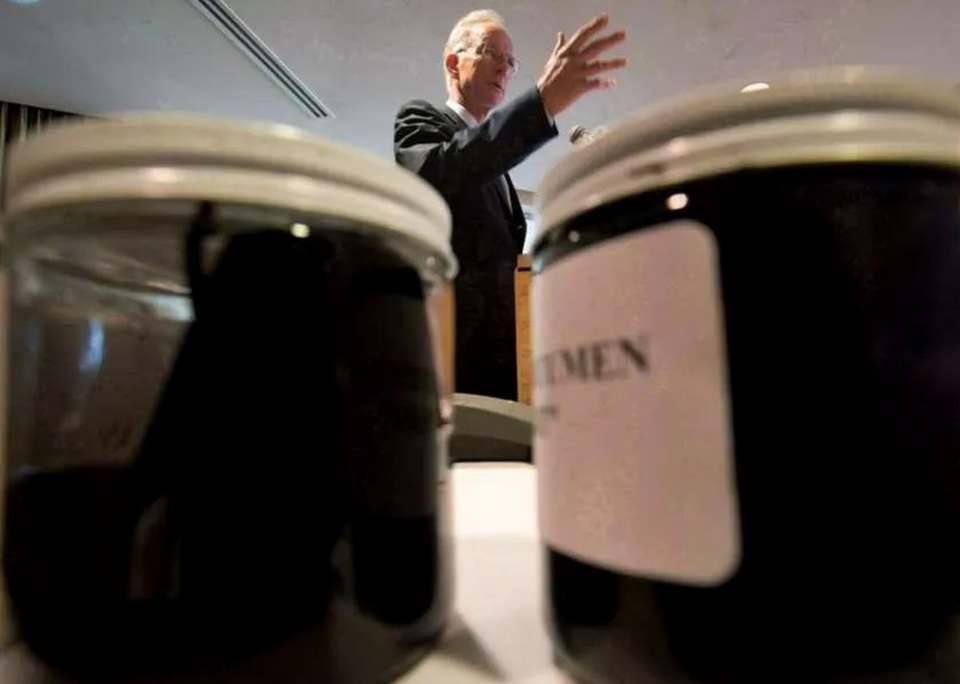B.C. newspaper publisher David Black has asked the federal government to suspend - just weeks after it was launched - a federal environmental panel review of his ambitious plan to build a "nation-building" $18-billion oil refinery near Kitimat.
The proposed project has generated considerable publicity, and at least an equal amount of scepticism, since it was first floated in 2012.
Black, who is seeking a $10-billion federal loan guarantee, pitched his Kitimat Clean project as a cleaner and less-controversial alternative to Enbridge Inc.'s proposed Northern Gateway pipeline.
The Enbridge project, in jeopardy due to stiff First Nation and public opposition and a pending northern B.C. coast crude oil tanker moratorium, would involve the shipment of diluted bitumen via pipeline to Kitimat.
From there it would be put on tankers that would go through the Douglas Channel to Asian markets.
Black suggests a refinery - he proposes technology to sharply reduce carbon emissions - that would instead process rail-shipped bitumen in B.C. That would create far more jobs than the Enbridge proposal, while producing refined petroleum products - like diesel, jet fuel and gasoline - that his proposal says would be less environmentally risky than the gooey bitumen.
The idea got the enthusiastic backing of B.C. Premier Christy Clark.
Both provincial and federal bureaucrats travelled with Black to China to seek investors.
But more than a half-decade later the idea appears to remain just that - an idea.
Black's Oct. 2 letter suspending the environmental review was sent to the Canadian Environmental Assessment Agency in response to the CEAA's Sept. 9 decision to set up a panel to study his proposal.
Black said he is still pushing for the project, but said he couldn't personally afford to pay the estimated $5-million cost for the environmental review.
He said he wants to strike an accord with local municipalities and First Nations, including the Haisla. That kind of local support would give him a better chance of finding investors who would finance the environmental review phase of the project.
He noted that the former Conservative government said it would agree to a $10 billion loan guarantee once the project was developed further. Joe Oliver, who was lobbied on the project while serving in Stephen Harper's cabinet as minister of natural resources and later finance, said Tuesday he doesn't remember the government making that pledge.
The Kitimat Clean proposal involves the construction of a refinery, power plant, rail yard, and bitumen storage facility 13 kilometres north of Kitimat, plus a pipeline that would send fuel to a marine terminal on the shores of the Douglas channel 12 kilometres south of Kitimat.
The project, according to the application, would process roughly 400,000 barrels of bitumen daily over a lifespan of at least a half-century.
Black had originally asked Enbridge if it could take over the proposed pipeline from Alberta, but was turned down.
Michal Moore, a professor of energy economics at the University of Calgary, was a critic of Black's proposal in 2012 and remains one today.
He said profit margins for the products Black wants to produce are already thin, and he questioned whether investors would be prepared to put up $18 billion.
"The idea of shipping finished product has limited attraction in a world where people want to build their own refineries and build their own specialized products," Moore said. "Why the B.C. government got so officially excited about it is a mystery to me. They didn't do their homework."



